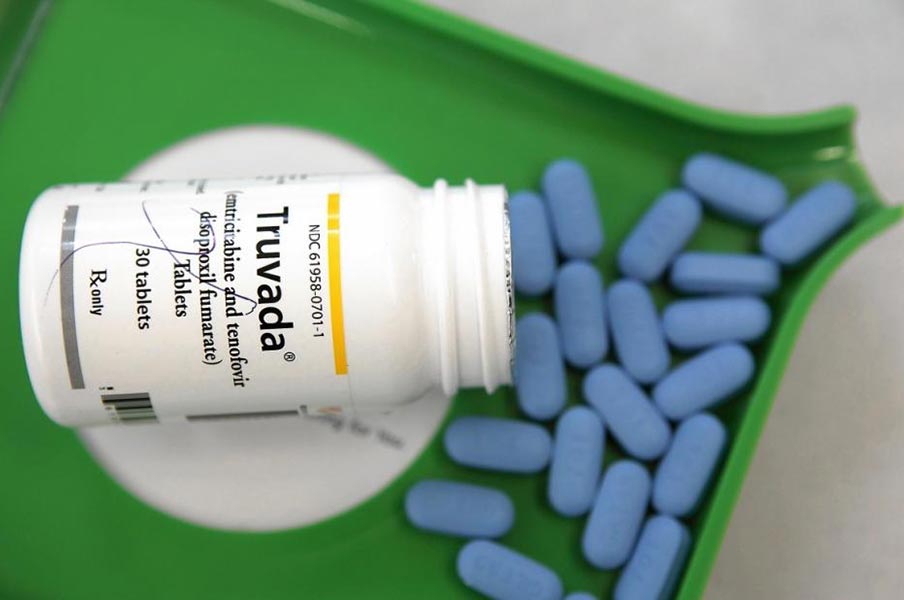You may have heard the word “PrEP” floating around in conversation lately. You heard it is a drug that can “prevent HIV,” but you’re not sure you believe that. People say they can take the pill and have unprotected sex, worry-free. It would appear as if PrEP were a miracle drug for the gay community but it has just as
many critics as proponents, with the facts about PrEP often misunderstood or misinterpreted. To help clarify what PrEP is and to weigh the pros and cons, PGN spoke to a few local medical professionals.
Jean-Marie Zippo is a registered nurse and drug and alcohol specialist for ActionAIDS. Dr. Helen Koenig is a physician at the Philadelphia FIGHT Lax Center and Hospital of the University of Pennsylvania. She is triple-boarded in internal medicine, infectious diseases and preventive medicine.
PGN: What is PrEP?
JMZ: PrEP stands for Pre-Exposure Prophylaxis
HK: PrEP is a pill that you can take every day that drastically reduces your chances of getting HIV.
PGN: How does it work?
JMZ: It works by blocking HIV.
HK: It works by preventing the virus that causes HIV to cause productive infection in your cells (that is, it prevents the virus from taking hold in your cells and thereby aborts infection before it starts).
PGN: What does taking PrEP entail?
JMZ: It entails taking one pill, one time a day.
HK: You also need to see your clinician to have the medication prescribed and undergo some fairly simple baseline testing for HIV, kidney function and other STIs. Also, repeat testing for these things at regular intervals, no less frequently than every three months.
PGN: Can you still contract HIV while taking PrEP?
JMZ: Yes. Although PrEP is very effective in preventing transmission of HIV, it is not 100 percent.
HK: Yes, especially if the medication is not taken consistently.
PGN: How effective is PrEP in preventing HIV?
JMZ: When taken consistently, one pill once a day, PrEP has been shown to lower transmission risk by 92 percent.
HK: Between 92-99 percent effective when taken daily. There have been several different analyses of efficacy.
PGN: What drugs are being used for PrEP?
JMZ: Currently, it is Truvada.
HK: Currently, Truvada is the medication approved for PrEP in the majority of patients. Tenofovir alone (which is a part of Truvada) is approved for use in some populations, specifically people who use injection drugs.
PGN: How do I determine if PrEP is right for me?
JMZ: Have a discussion with your health-care provider and be very honest about your behaviors. It is behaviors that put people at risk for HIV infection.
HK: Talk to your clinician about your risks, and the potential benefits of PrEP.
PGN: If I take PrEP, do I still need to wear a condom?
JMZ: Yes, the recommendation is to continue with safer-sex practices including condom use.
HK: Yes. In addition, condoms protect against other STIs, whereas PrEP only prevents you from getting HIV.
PGN: My partner is HIV-positive, I am HIV-negative. Is PrEP right for me?
JMZ: It may be. All discordant couples, regardless of gender or sexual orientation, should discuss PrEP with a health-care provider. That includes couples in mutually monogamous relationships.
HK: It very likely might be right for you, but a full discussion with a clinician is warranted. Every person (and couple) is different.
PGN: What about side effects from Truvada for PrEP? How will my body be affected?
JMZ: Truvada is a well-tolerated medication. The most common side effects are nausea, vomiting, diarrhea, headache. It may change the color of skin on palms or soles of the feet. More serious side effects include worsening of Hepatitis B infection and a build up of lactic acid in the blood. It is very important to continue seeing a health-care provider while taking PrEP.
HK: Side effects are minimal. You may experience some nausea, loose stools and headache for the first few days. These side effects should last no longer than two weeks at most.
PGN: Does PrEP give people an excuse not to wear condoms? Is it irresponsible not to wear condoms?
JMZ: Scientific research has indicated people do not increase risky behaviors when they begin PrEP. It is up to individuals and couples to decide their own acceptable level of risk; hopefully, the decision is being made with reliable information.
HK: Every person is different, and PrEP is another powerful tool in our arsenal to protect against HIV. PrEP, as a general rule, is not an excuse to not wear condoms.
PGN: Aren’t condoms enough?
JMZ: No. Consistent condom use is effective in decreasing risk of HIV infection. However, like PrEP, they are not 100 percent.
HK: Condoms, when used regularly, correctly and consistently, are very effective at preventing HIV. However, condoms can break, get stuck “inside” and sometimes forget to be used. Condoms may not be something every person and every couple wants to use. Hence, the need for PrEP.
PGN: Why do we need HIV-prevention medications like PrEP?
JMZ: Transmission of HIV continues to be a significant public-health issue. People have different needs and we do not have one perfect way to prevent transmission. The more choices available, the more likely people will be able to find what works for them.
HK: Because HIV is something that is fully preventable without impacting sexual practices and sexual freedom, and without causing significant adverse side effects for the person taking PrEP.

